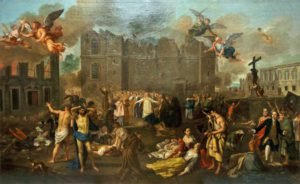Summary: It is imperative for Christians to demonstrate that the Christian faith is not an escapism from the challenges of life. Indeed, Christian faith is world affirming, that is, it is a faith that values and promotes the flourishing of personal and social life on earth. In this regard, Christians need to recover two key … Continue reading “The Social Impact of Christian Salvation”
Summary: It is imperative for Christians to demonstrate that the Christian faith is not an escapism from the challenges of life. Indeed, Christian faith is world affirming, that is, it is a faith that values and promotes the flourishing of personal and social life on earth. In this regard, Christians need to recover two key teachings of the Bible: Creation order and the covenant community.
There is a popular hymn that goes, “This world not my home, I’m just a-passing through… My treasures are laid up, somewhere beyond the blue. The angels beckon me from heaven’s open door and I can’t feel at home in this world anymore…”
Continue reading “The Social Impact of Christian Salvation”
 The problem of evil is arguably the most intractable problem facing the theist. The first challenge for the theist is the logical problem of evil which says that the set of propositions comprising the following – (1) An omnipotent God creates this world, (2) God is perfectly good, (3) This world is not perfectly good, i.e. evil exists – is an inconsistent set. Holding to any two of these propositions requires dropping the third to avoid the problem of contradiction. For example, that evil exists demands either God is good but not omnipotent (since he fails to prevent evil) or that God is omnipotent but not truly good (since he allows evil despite having the power to prevent it).
The problem of evil is arguably the most intractable problem facing the theist. The first challenge for the theist is the logical problem of evil which says that the set of propositions comprising the following – (1) An omnipotent God creates this world, (2) God is perfectly good, (3) This world is not perfectly good, i.e. evil exists – is an inconsistent set. Holding to any two of these propositions requires dropping the third to avoid the problem of contradiction. For example, that evil exists demands either God is good but not omnipotent (since he fails to prevent evil) or that God is omnipotent but not truly good (since he allows evil despite having the power to prevent it).